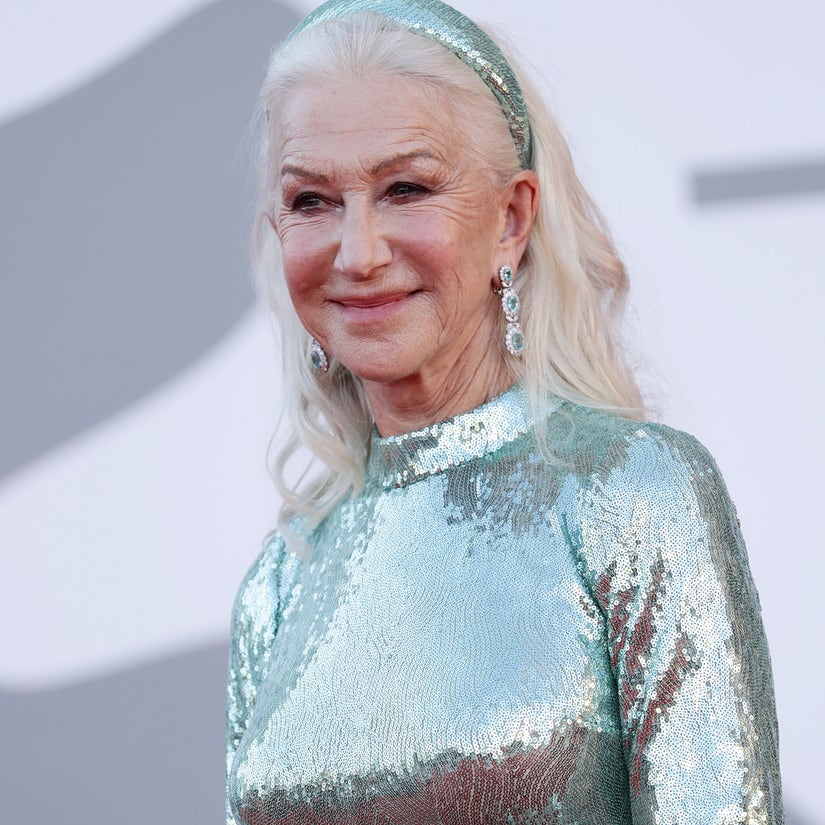Helen Mirren Believes Backlash to Her Upcoming Jewish Role Is ‘Utterly Legitimate,’ But Also More Complicatedtoofab.comon February 6, 2022 at 3:56 pm

“If someone who’s not Jewish can’t play Jewish, does someone who’s Jewish play someone who’s not Jewish?” Mirren asked.
Dame Helen Mirren hears the criticism, concerns and backlash over her casting as a Jewish woman, and it’s a concern she herself raised before accepting the role.
The screen icon came under fire after it was announced she had been cast to portray the former Israeli Prime Minister Golda Meir in an upcoming biopic, “Golda,” but she was raising those questions before the story even broke.
Sara Haines Rallies Behind Whoopi Goldberg After View Cohost Is Suspended
In an interview with The Daily Mail, Mirren said that she approached director Guy Nattiv with the same concerns she’s hearing now. “It was certainly a question that I had, before I accepted the role,” she told the outlet.
“I said, ‘Look Guy, I’m not Jewish, and if you want to think about that, and decide to go in a different direction, no hard feelings. I will absolutely understand,'” she continued. “But he very much wanted me to play the role, and off we went.”
Dame Maureen Lipman was among those spearheading the discussion against Mirren’s casting, in a story for the Jewish Chronicles, where she noted, “If the ethnicity or gender of the character drives the role, then that ethnicity should be prioritized.”
“I’m sure [Mirren] will be marvelous, but it would never be allowed for Ben Kingsley to play Nelson Mandela,” said Lipman. “You just couldn’t even go there.”
Susan Sarandon Apologizes for Anti-Cop Post About Slain NYPD Officer’s Funeral
That article, though, saw a healthy debate about the issue with Jewish filmmakers and theater directors arguing passionately on both sides of the issue. Playwright and director Patrick Marber argued, “I want us Jews to be liberal-minded and generous. I think a gentile can play a Jew and a Jew can play a gentile. I don’t like it when someone plays a Jew and gets it wrong. [But] I don’t like quotas.”
Actor Elliot Levy, who is currently performing in “Cabaret” with Eddie Redmayne and Jessie Buckley, added, “The notion of people showing their papers to authenticate Jewish ancestry in order to justify playing a Jewish role is a dystopian nightmare.”
Even Lipman herself has argued the other side of the coin, but in the case of Mirren, she said it is because the “Jewishness of the character is so integral.” “Right now, representation f—— matters,” Lipman argued. “It has to also finally matter for Jews as well. Especially Jewish women.”
Responding directly to Lipman’s comments, Mirren told The Daily Mail, “I do believe it is a discussion that has to be had — it’s utterly legitimate.” But, she believes that discussion needs to look at the whole issue and all the possible implications and permutations.
Lake Bell Breaks Silence on ‘Humiliating’ Nude Photo Leak, How It Informed Pam & Tommy Directing
“You know, if someone who’s not Jewish can’t play Jewish, does someone who’s Jewish play someone who’s not Jewish?” Mirren asked. “There’s a lot of terrible unfairness in my profession.”
She went on to note, “If there’s an actor who’s disabled, who’s brilliant but has had very few opportunities, and now a wonderful role comes along that’s for a disabled actor, everything being righteous, he or she should have that role.”
But does that mean only gay actors should portray gay roles? “‘I know actors like Ian McKellen would, I think, take big issue with that,” she said. “Because what happens then if you’re a gay actor? Shouldn’t you be able to play straight parts? Is this really a path you want to go down?”
It’s about knowing where and when and why to draw those lines.
Mirren talked about her experiences acting in Shakespeare productions over the years and how casting has expanded to where Black actors can take on major lead roles that had been portrayed by white males for centuries.
For years, she’d always fantasized portraying Hamlet as a woman, and now that’s been done. Mirren says these diverse opportunities “reveal new understandings about the play[s].” How do we find the appropriate ways to limit this expression?
[#item_full_content]
